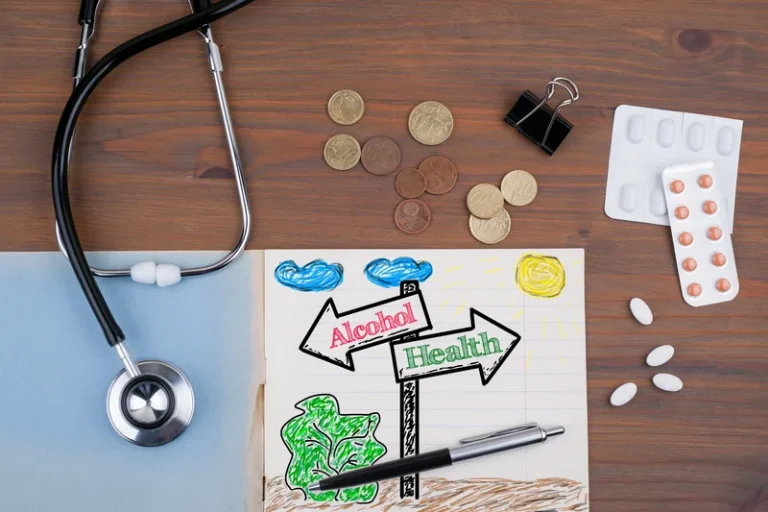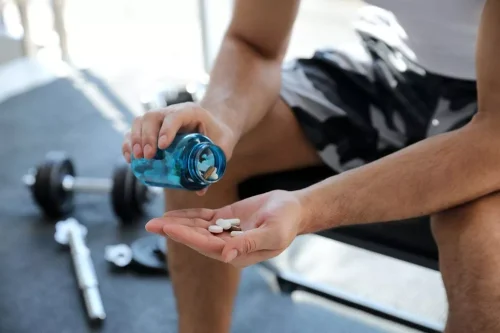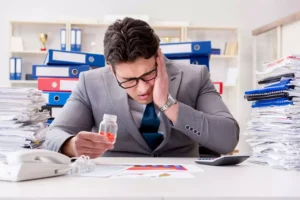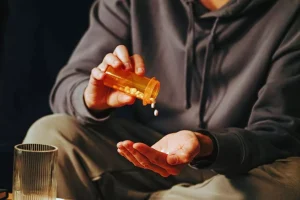
This is because alcohol is a costly habit, so giving it up can free up some extra cash. Another benefit of giving up alcohol is that your mind may be clearer. This is because alcohol can cause changes in brain chemistry, which can lead to cognitive problems.

Alcohol withdrawal symptoms
If you have these symptoms if you miss a drinking session, it can be dangerous to stop drinking completely too quickly without proper support. Unhealthy alcohol use includes any alcohol use that puts your health or safety at risk or causes other alcohol-related problems. It also includes binge drinking — a pattern of drinking where a male has five or what happens when you stop drinking alcohol more drinks within two hours or a female has at least four drinks within two hours. You’ll likely begin to feel better between five to seven days after you stop drinking, though some symptoms—like changes in sleep patterns, fatigue, and mood swings—can last for weeks or months. The severity of alcohol withdrawal is categorized into three stages.
Improved Immunity
People experiencing mild to moderate alcohol withdrawal symptoms often receive outpatient care—meaning there is no extended time spent in a hospital or facility. It’s recommended, however, that they have someone stay with them who can help during recovery. The symptoms of alcohol withdrawal delirium include withdrawal seizures that can occur between 8 and 28 hours after your last drink. Signs of an impending seizure include tremors, increased blood pressure, overactive reflexes, and high temperature and pulse.
Stage 2: Moderate Withdrawal
Your doctor can recommend medications that can help with alcohol withdrawal symptoms and cravings during your recovery. Naltrexone is one type of medication that can help reduce alcohol cravings, making it easier for some people to stop drinking. This typically occurs after five or more drinks for men and four or more drinks for women. Alcohol has many negative effects on your physical and mental health. The benefits of quitting drinking are often apparent soon after you stop, and will only continue to improve the longer you abstain from drinking.
- Alcohol withdrawal symptoms can be greatly reduced or even eliminated with proper medical care.
- If you consistently consume significant amounts of alcohol, your CNS gets used to this effect.
- Severe alcohol-induced hormone dysregulations can sometimes cause serious issues like reproductive deficits, thyroid problems, and behavioral disorders over time.
By your second week, your gut will begin to heal, and many of these issues will start to subside. You may notice less heartburn, gassiness, bloating and stomach pain, and your bowel movements may become more normal. Your urge to drink may be so intense that you can’t think about anything else.
- For heavy drinkers, quitting cold turkey isn’t the safest option.
- This is because alcohol can cause depression, anxiety, and other mental health problems.
- It can be helpful to write down your reasons for quitting and the difficulty of withdrawal while it is fresh in your mind.
- Maybe you’ve never been interested in logging your innermost thoughts, but journaling can be a great tool to track your feelings as you work on quitting alcohol.
- It may be easier on your rehabilitation to skip visits with “drinking buddies” or avoid gatherings with a focus on drinking.
Keep in mind, though, that research on whether alcohol is a risk factor for weight gain is mixed. If your doctor thinks you might be going through alcohol withdrawal, they’ll ask you questions about your drinking history and how recently you stopped. They’ll want to know if you’ve ever gone through withdrawal before. One of the best things about giving up alcohol is that you may find yourself feeling happier overall. This is because alcohol can cause depression, anxiety, and other mental health problems. Drinking alcohol can contribute to a variety of cognitive issues, including poor memory, slow reaction time, impaired impulse control, and poor concentration.
- This can make you feel energetic and even extremely happy (euphoric) shortly after you drink alcohol, but the effects don’t last.
- Westman, J.; Wahlbeck, K.; & et al. “Mortality and life expectancy of people with alcohol use disorder in Denmark, Finland and Sweden.” Acta Psychiatrica Scandinavica.
- Alcohol can cause problems in relationships, such as conflicts, communication problems, and trust issues.
- Exploring, in writing, what you find difficult and when you most want to drink can help you notice patterns that offer more insight into your alcohol use.
Alcohol might help you get to sleep faster, but it keeps you from reaching the deepest, most restorative stages of sleep. As you experience fatigue from the strain of withdrawal, you will likely begin to notice that the sleep you get is far more restorative and that you feel much better when you wake up in the morning. The effects of high-quality sleep will continue to build each day. Alcohol withdrawal symptoms generally begin within 12–24 hours after your last drink. They will initially be milder, with a headache, tremors and mild anxiety being the first symptoms.
- It’s based on several factors, including how long, how much, and how regularly you have been drinking alcohol.
- Research shows that drinking large amounts of alcohol before bedtime leads to decreased sleep onset and disrupted, poor quality sleep later in the night.
- Because denial is common, you may feel like you don’t have a problem with drinking.
- These interactive effects could cause medications to become less or more effective.
- “I would suggest cutting back on several things rather than completely eliminating to avoid feeling deprived, which can lead to rebound eating/drinking and weight regain,” she said.
- If you’re ready to stop, arming yourself with strategies and tips can help you or a loved one take small steps towards big results.

If you’re taking any medication, be sure to read the package label and insert carefully—and/or talk to your doctor—to see if you should abstain from drinking alcohol altogether. Genetic, psychological, social and environmental factors can impact how drinking alcohol affects your body and behavior. Theories suggest that for certain people drinking has a different and stronger impact that can lead to alcohol use disorder.

After 3 Days Without Alcohol
While alcohol is high in calories, and wine, beer, and mixed drinks add sugar to one’s diet, Kumar said that simply cutting it out may not always help you lose weight. For anyone concerned about heart health, Dasgupta recommended decreasing alcohol intake and increasing physical activity, which also raises good cholesterol. “[The bottom line] is, protect the heart with [a] low amount of alcohol, but increase the risk of cardiovascular disease with high amount of alcohol,” Dasgupta said.
